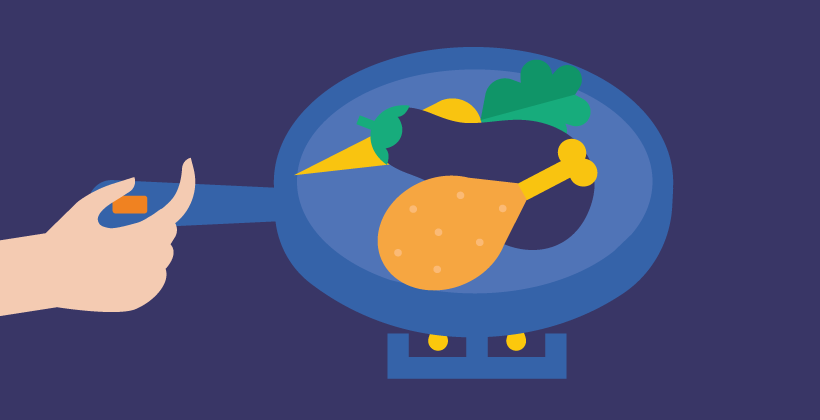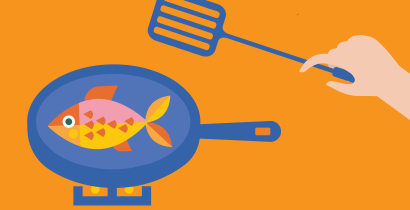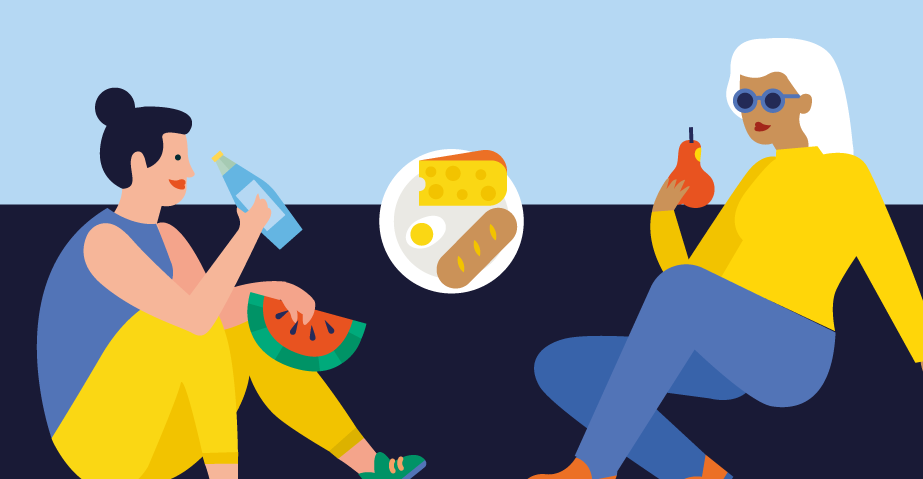Cooking with a grill, over an open flame, frying or smoking your food
Last Updated : 30 November 2011Variety makes our diet interesting and enjoyable. Not only the wide choice of foods but also the ways to prepare them allow for numerous variations. When grilling your food, using an open flame, frying or smoking your food it is important that you pay attention to a few simple food handling and cooking tips. Doing so will make your meal both enjoyable and safe to eat.
We have written previously about the importance of ensuring your food is fully cooked.1 Not only does cooking your food properly help kill bacteria and improve biological safety, it also adds flavour; in fact, it is the browning process when cooking meat, many vegetables and grains that adds taste to these foods. However, overcooking your food can raise safety concerns. Achieving the right balance between undercooking and overcooking plays an important part of enjoying your food and keeping you safe.
The good news is that getting it right is easier than you think; it’s really just common sense and applying the cooking lessons that we learned when we were young: don’t char your meat when cooking or grilling it; don’t burn your toast or other starchy foods; and make sure you use clean oil when frying your food. The science behind these rules is complex but you will find an overview in the following sections:
Don't char your meat
Overcooking meat – including beef, pork, poultry and fish – can lead to the formation of some potentially harmful substances such as N-nitroso compounds and heterocyclic amines, or HCAs for short. These compounds have been linked to adverse health effects in animal experiments (e.g. DNA damage, cancer), so it is best to be careful and reduce your exposure. There are some simple tips to help you avoid HCAs and enjoy cooked meat safely:
-
Shorten time on the grill: Use a thermometer to gauge the meat temperature so it can be removed as soon as it’s ready to eat. According to the UK Food Standards Agency, when cooking poultry, fish, minced/chopped meat such as burgers, and sausages, the centre of the meat should reach a temperature of at least 70°C for two minutes before being removed.2
-
Marinate meat: Research indicates that marinating meat – in beer, red wine, teriyaki sauce, olive oil, or another marinade of your choice – can help protect against and reduce the formation of hazardous compounds.3
-
Remove burnt meat: Be sure to remove and throw away charred portions of meat before eating, and avoid using gravy made from meat drippings.
Don't burn your toast or other starchy foods
Overcooking should be avoided when cooking other foods as well. High temperature cooking of high starch foods such as breads, cereals, potatoes and crackers naturally forms a compound called acrylamide, which has also been linked to adverse health effects in animal experiments (e.g. DNA damage, cancer).4,5 According to the World Health Organization, “the information available on acrylamide so far reinforces general advice on healthy eating, including moderating consumption of fried and fatty foods.”6 Acrylamide formation can be reduced by the following measures4:
-
Avoiding excessive crisping or burning when frying foods;
-
Boiling potatoes or microwaving whole potatoes with the skin on (“microwave-baked potatoes”);
-
Toasting bread to a light brown colour rather than a dark brown colour. Avoid eating very brown areas altogether;
-
Cooking cut potato products, such as frozen french fries or potato slices, to a golden yellow colour rather than a brown colour.
Use clean oil when frying and avoid big flames when cooking
Frying food in over-used cooking oil not only affects the taste of the food, but it also results in the production of chemicals called polycylic aromatic hydrocarbons (PAHs).7 The European Food Safety Authority has identified PAHs as a health concern and encourages people to avoid it by cooking with clean oil – which not only improves the taste but is also better for you.8 PAHs can also form during other cooking that involve high temperatures and fats/oils, such as when meat is smoked or when naturally occurring oils in fish, meat, or sauces are heated. When fat and juices from meat drip on hot surfaces where food is cooking, flames and smoke can rise up and allow the PAHs to stick to the surface of the meat. So make sure you use clean oil (discard oil that gives off bad odour), trim the fat from your meat and avoid cooking with big flames and too much smoke.
Cooking your food should be fun and following these simple tips grilling, frying, cooking with a flame and smoking your food can be safer.
References
- Food Standards Agency (2002). Guide to Food Hygiene.
- Melo A et al. (2008). Effect of Beer/Red Wine Marinades on the Formation of Heterocyclic Aromatic Amines in Pan-Fried Beef. J Agric Food Chem 56(22):10625–10632.
- US Food and Drug Administrationi (2008). Additional Information on Acrylamide, Diet, and Food Storage and Preparation.
- European Commission. Food and Feed Safety section. Food Contaminants - Acrylamide.
- World Health Oorganization. Frequently asked questions - acrylamide in food.
- European Commission. Food and Feed Safety section. Food Contaminants - Polycyclic Aromatic Hydrocarbons (PAH).
- European Food Safety Authority (2007) Findings of the EFSA data collection on polycyclic aromatic hydrocarbons in food. EFSA Journal 5(9):33r.



